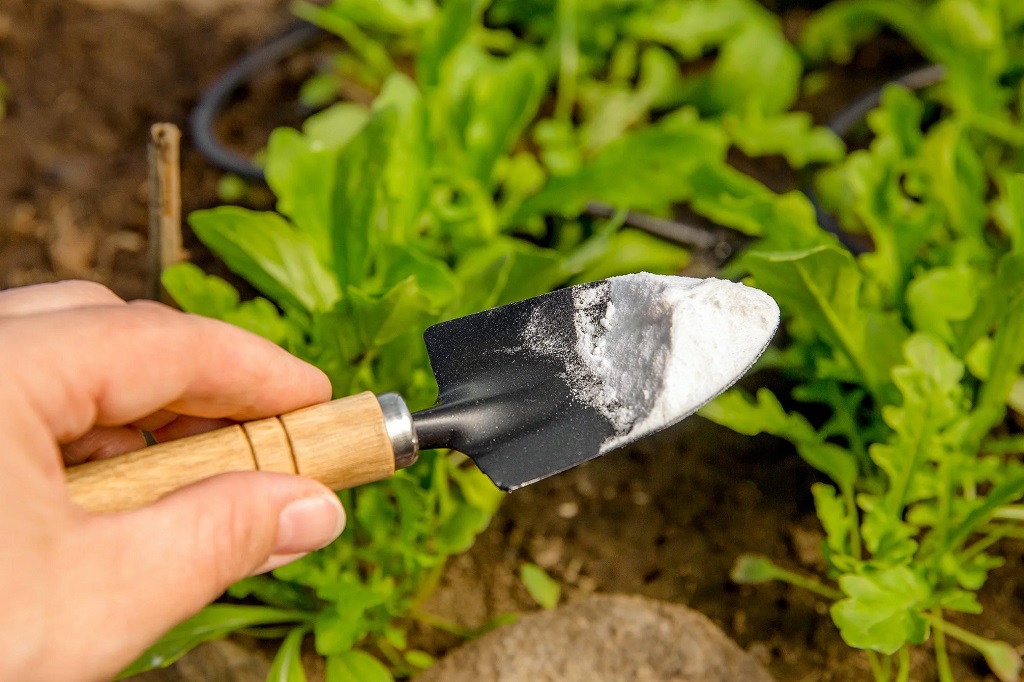
When it comes to gardening, there are numerous factors to consider in order to achieve optimal plant growth and health. One question that often arises is whether baking soda, a common household ingredient, can be beneficial for plants. In this article, we will delve into this topic and explore the potential uses of baking soda in gardening. So, let’s find out if baking soda can indeed help plants grow and thrive.
Understanding Baking Soda
Before we dive into the potential benefits of baking soda for plants, let’s start by understanding what baking soda actually is. Also known as sodium bicarbonate, baking soda is a white crystalline powder with various applications both in the kitchen and around the house. Its chemical formula (NaHCO₃) indicates its composition, which consists of sodium (Na), hydrogen (H), carbon (C), and oxygen (O). Baking soda is widely recognized for its versatility and has been used for generations in various home remedies and cleaning solutions.
The Role of Baking Soda in Gardening
Balancing Soil pH
One of the key aspects of successful gardening is maintaining the appropriate pH level in the soil. Different plants thrive in different pH ranges, and if the soil becomes too acidic or alkaline, it can hinder nutrient uptake by the plants. Baking soda, with its alkaline nature, has the potential to help balance the pH level of the soil. However, it is crucial to note that this method should be employed with caution, as altering the soil pH dramatically may have adverse effects on certain plant species. Additionally, if you’re having trouble with gnats in plants coffee grounds, you may want to consider using coffee grounds as a natural deterrent.
Fungal Disease Prevention
Fungal diseases can be a common challenge in gardening, causing damage to plant roots, stems, and leaves. Baking soda has long been recognized for its antifungal properties and can potentially help in preventing and controlling certain fungal diseases. By creating an environment that is less favorable for fungal growth, baking soda can act as a natural deterrent. However, it is important to follow recommended guidelines and avoid excessive use, as it can also harm beneficial microorganisms in the soil.
Boosting Plant Growth
Baking soda has been associated with promoting plant growth in certain situations. Its ability to enhance nutrient absorption and facilitate photosynthesis has made it a popular choice for some gardeners. However, it is worth noting that the effectiveness of baking soda in promoting growth may vary depending on the plant species, soil conditions, and other environmental factors. Conducting thorough research and consulting with experts can help determine if and how baking soda can be incorporated into your specific gardening practices.
Examples of Baking Soda Use in Gardening
Tomato Plants
Tomatoes are a popular choice for home gardeners, and some have reported positive outcomes by using baking soda in their tomato cultivation. Baking soda has been utilized as a foliar spray to control fungal diseases such as powdery mildew, which often affects tomato plants. By creating an inhospitable environment for fungal growth, baking soda can potentially help maintain healthy tomato plants and improve yield.
Acid-Loving Plants
Certain plants, such as blueberries and azaleas, thrive in acidic soil conditions. If your soil is naturally alkaline, adding baking soda in small amounts can help lower the pH and create a more suitable environment for these acid-loving plants. However, it is crucial to monitor the pH levels regularly and make adjustments gradually to avoid any drastic changes that may harm the plants.
Baking Soda and Weed Control
While baking soda is not a herbicide, it has been used as a natural alternative to control certain types of weeds. Sprinkling baking soda directly onto weed-prone areas can help inhibit weed growth by altering the pH balance in the soil. However, it’s important to note that baking soda may not be effective against all types of weeds, especially persistent and invasive ones. In such cases, it’s advisable to explore other weed control methods or consult with gardening professionals.
Tips for Using Baking Soda in Gardening
When considering using baking soda in your gardening practices, it’s essential to keep the following tips in mind:
- Moderation is Key: Baking soda should be used in moderation. Excessive use can disrupt the natural balance of the soil and harm plants and beneficial microorganisms.
- pH Testing: Regularly test the pH levels of your soil before and after incorporating baking soda. This will help you monitor any changes and make adjustments accordingly.
- Plant Compatibility: Research the specific plant species you intend to treat with baking soda. Some plants may be more sensitive to pH changes and may not respond positively to baking soda application.
- Follow Recommendations: Follow recommended guidelines for the application of baking soda in gardening. These guidelines often provide information on the appropriate quantities and application methods for different purposes.
- Consult Experts: If you have any concerns or questions regarding the use of baking soda in your garden, consult with gardening experts, horticulturists, or local extension services. They can provide valuable insights and recommendations based on your specific gardening needs.
In conclusion, while baking soda has been associated with certain benefits for plants, it is important to approach its use in gardening with caution and knowledge. Baking soda can potentially help balance soil pH, prevent fungal diseases, and aid in the growth of certain plants. However, its effectiveness may vary depending on factors such as plant species, soil conditions, and environmental factors. Remember, gardening is a dynamic and complex process influenced by various factors. It is always recommended to conduct thorough research, experiment carefully, and seek expert advice to ensure the best possible outcomes for your plants.
